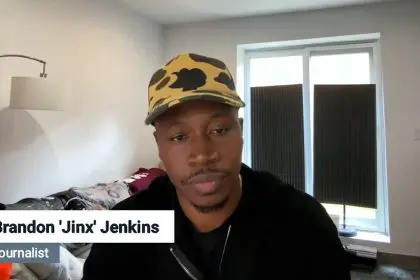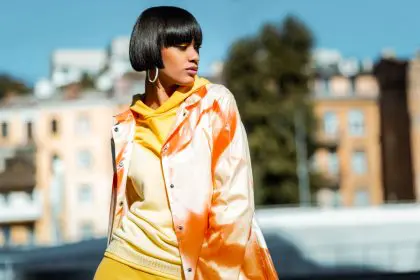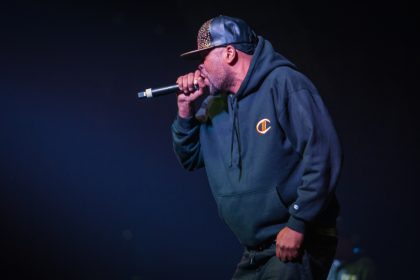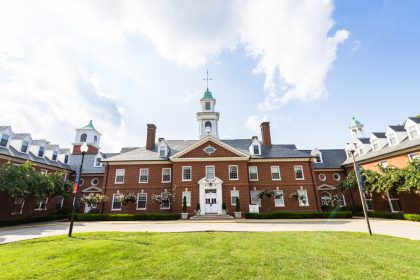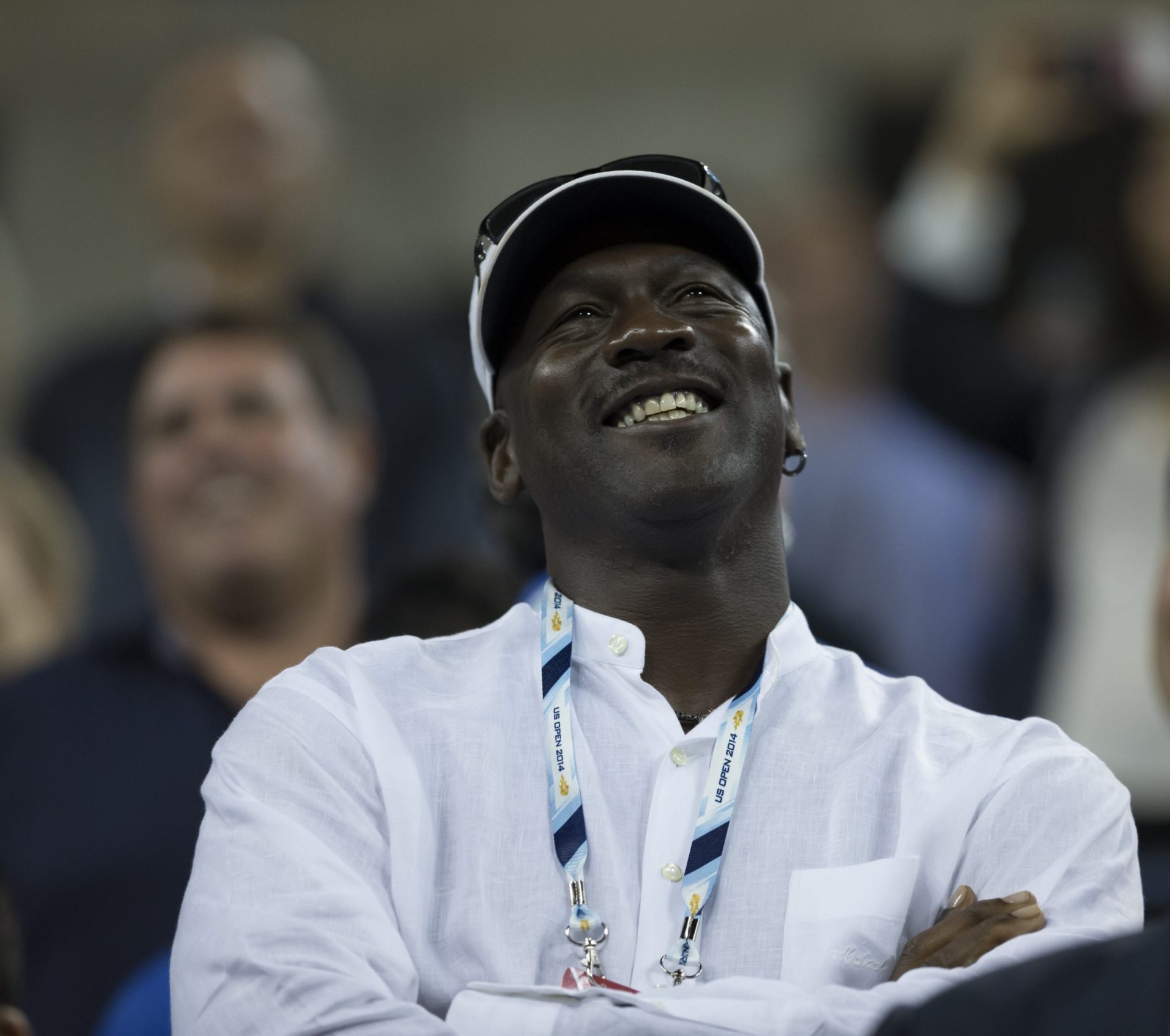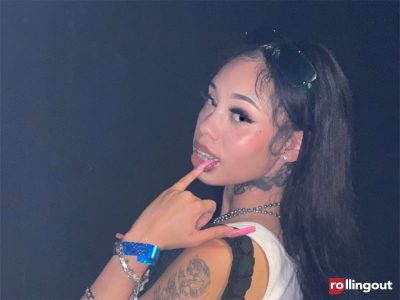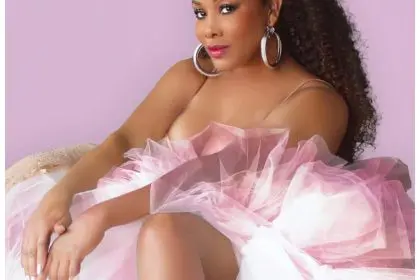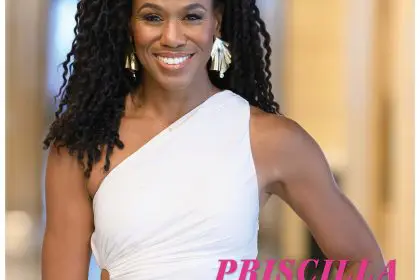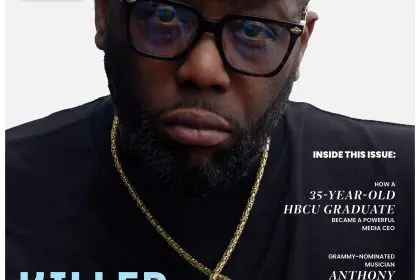
We will never forget the heartwarming smile and witty remarks that made us all want to have a sister, daughter or friend like Rudy Huxtable of “The Cosby Show.” But today, Keshia Knight Pulliam — who brought little Rudy’s character to life in the mid-’80s — has
developed into a stunningly beautiful actress with an impressive portfolio.
For her recent interview and cover shoot with rolling out, Pulliam donned a hot-pink blouse that hung just below a pair of skimpy leather shorts and accented with an eye-catching pair of Christian Louboutin glitter slingbacks.
Effortlessly, she radiated sexiness and maintained an alluring confidence throughout the two-hour shoot. Comfortable with expressing her desires, fears and expectations, Pulliam reveals her candid thoughts on relationships. She gives insight on what it’s like to work with two of the most powerful black men in television and tackles Hollywood’s disgraceful neglect of diversity. This isn’t the tragic tale of yet another fallen child star à la “E! True Hollywood Story.” The former “Cosby kid” and Spelman College graduate has moved beyond her childhood success and is creating a legacy all her own.
You recently started a new season of “House
of Payne.” What can viewers expect from this season?
We have a lot going on. My character, Miranda, was pregnant all of last season, so we’re coming up to the birth of the baby. This season will focus on my story line with Calvin and our being a newly wed couple.
You have worked with two of the best: Bill Cosby and Tyler Perry. What are some of the most important things that you learned from them?
With Mr. Cosby, I have such a wonderful foundation in terms of my craft, professionalism, and being with the best of the best. I’m thankful for that because I didn’t learn bad habits. I learned it the best way and the right way. He also taught me to be creative and comedic timing, which is an art form. He and Tyler Perry both are very concerned with the community, what we represent, how powerful the imagery is, and how important it is to have black leadership out there for young boys and girls.
Bill Cosby caught a lot of flack for speaking out about some of the issues that affect the black community. Was he that opinionated when you worked with him?
I think Mr. Cosby has always been very much an activist and a big proponent of African American pride. That’s how “The Cosby Show” came about. I think in his older years, he has gotten a lot more direct and vocal about it. But I think he only wants the best for all of us.
Cosby has taken a lot of heat for some of the statements he has made. Do you think he is misunderstood?
I think people can always take sound bites and misconstrue them. Mr. Cosby has done so much for so long and helped so many people with his philanthropy. I think he’s like, “I’m going to say what I have to say and, if you don’t like it, that’s fine. But I’m going to say what’s on my mind.” And I feel like he has earned the right to say what he wants to say. If you don’t like it, don’t listen.
“The Cosby Show” will have a reunion on TV Land in April. What was the biggest impact of the show?
It was so groundbreaking in that it was the first time that the world saw a middle to upper class black doctor and lawyer married with children. And people saw themselves in the family no matter where they came from. I think it showed the world how much more alike we are than different. The stories on “The Cosby Show” transcend time. That’s why I believe it still runs on several networks, and it’s syndicated all over the world. It’s so wonderful to have people from other countries come up to me and say,”Oh, my gosh! I grew up with you and, now, my kids are growing up with you.” That’s big.
You have been in the spotlight for a long time starting with “The Cosby Show.” Has that recognition caused any problems with men wanting to date you?
Dating is always interesting because you men are “special.” I think you get some people who do want to be next to you because of the recognition, and you get those who are intimidated by what I’ve done and who I am. But as you get older, that’s what dating is. You sift through that and find “the diamond in the rough.” God made me, so I know he made my counterpart. So, I’m good and patient.
I speak to a lot of women about shows and articles that suggest there are not enough available black men for black women. Do you think that idea is being perpetuated by the media, or is there really a lack of good black men?
I don’t know if there is a “lack” of good black men. But when you haven’t taken the time to get to know yourself, be OK with you, and articulate what it is you want in a relationship, then you can’t possibly find that person for you because you don’t even know what you’re looking for. Mostly, I think that if two people don’t work out, they just aren’t the right match, and there isn’t anything wrong with that. There is someone for everyone. But if you don’t have your stuff together, it’s not going to work. You have to really judge people [based] on what’s on the inside versus the superficial.
What are three things that you think every woman can do to keep a relationship strong?
Be who you are. The biggest mistake women make is trying to be who the other person wants them to be. And if that’s the case, that’s not the person for you. You can never love another person more than you love yourself. I also think people take stuff way too seriously. I’d rather laugh — not fuss and fight. You can articulate your point without arguing. When you’re arguing constantly, you just need to say, “You’re real cool, but you’re not
for me.”
What can men do to help keep relationships strong?
[Laughing] Stop hoeing. Some men have a problem with being satisfied with what they have. Men have a tendency of always having a feeling that they’re missing something over there. And that’s not always the case.
Let’s talk about the lack of progress in Hollywood. The Golden Globes did not honor one African American actor or actress. Blacks were also shut out of the Academy Awards this year. Why is Hollywood still behind?
I think that there is definitely work to be done. It can always be more diverse. We live in a very multicultural and global society. More needs to be done to increase the representation of all people and really show the world for what it is. It’s not just one color.
Do you think that you have lost some roles because you are an African American woman?
I think that happens a lot of times in Hollywood. Unfortunately, they are not writing the greatest roles for African American women, in general. That’s why I have a production company. That’s why I want to increase the diversity. Some people gave me flack for playing a prostitute when I starred in Madea Goes to Jail. But that’s what you are as an actor. You have to play a diverse body of characters and roles. The disparity is there being more of those types of roles and fewer of any other type. Ultimately, we need more roles across the board.
What do you want people to say about your legacy?
I want to be remembered for my body of work and the legacy that I leave. I also want to be
remembered as a person who really gave back in every way and was selfless in giving all that I
could give.

